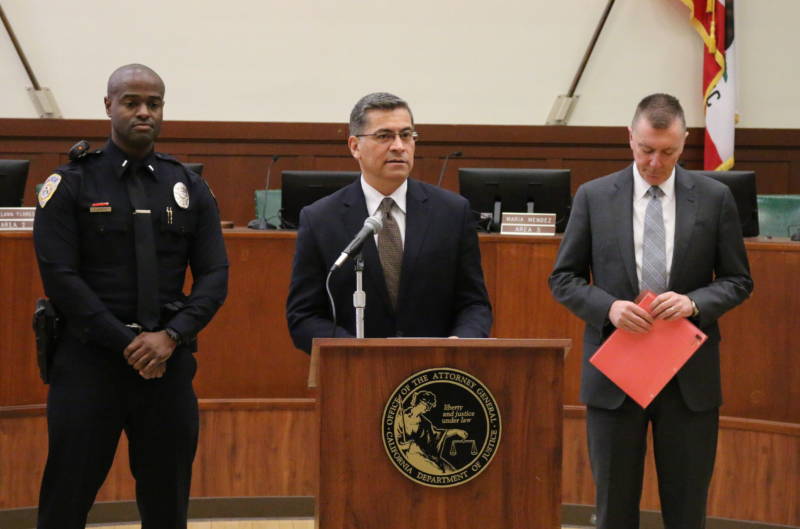Standing alongside Becerra, Stockton Unified School District Superintendent John Deasy pointed to changes the district has already made in its cooperation with the California Attorney General’s Office.
“We take the notion of lifelong learning — not lifelong punishment — dead serious,” Deasy said.
“We think a lot about ‘Stockton now’ and ‘Stockton then.’ This inquiry ... began a number of years ago and looked at the data at that point. The data looks different today. And that is a joint effort in examining what was pointed out and our commitment to do better,” Deasy said.
In 2015, a coalition of organizations, including the American Civil Liberties Union, alerted the California Department of Justice that increased police-student contact at Stockton schools appeared to be having a disproportionately negative impact on students of color and students with disabilities.
The California DOJ began investigating the school district and its police department in November 2015.
In 2016, the ACLU sued Stockton Unified to obtain records of police interactions with students and eventually obtained the records through a settlement. Arrest data produced from the documents showed a “culture of over-policing” by the district, according to the ACLU.
In October 2017, the Attorney General’s Office concluded that for children under 10, the odds of incidents with African-American students resulting in police action at Stockton Unified schools were 176.9 percent higher than for white students.
The DOJ's analysis found that the odds of an incident involving a Latino student 10 and over resulting in the student being booked into custody were 124 percent greater than for other students.
The investigation found that SUSD failed to modify its policies related to referrals to law enforcement, resulting in students with disabilities being subject to interrogation, use of force and/or arrest for behavior resulting from their disabilities.
“When students acted out due to their disabilities, they were at times referred to law enforcement,” Becerra said. “We found that law enforcement referrals had a disparate impact on African-American and Latino students at Stockton Unified.”
As part of the settlement, the Department of Justice will monitor Stockton Unified for five years. The district will also be required to reformulate clear policies with respect to when students are referred to law enforcement and adopt policies which state that police officers should not be involved in disciplinary infractions that are more appropriately the responsibility of school administrators and teachers.
“We are cautiously optimistic,” said Linnea Nelson, an ACLU staff attorney who represents the organization in the Stockton Education Equity Coalition. “Several elements of the settlement agreement reflect positive changes for which the Stockton Education Equity Coalition, of which the ACLU is part, has been fighting for many years. ... We hope the district takes seriously its obligation to implement this agreement with fidelity.”

